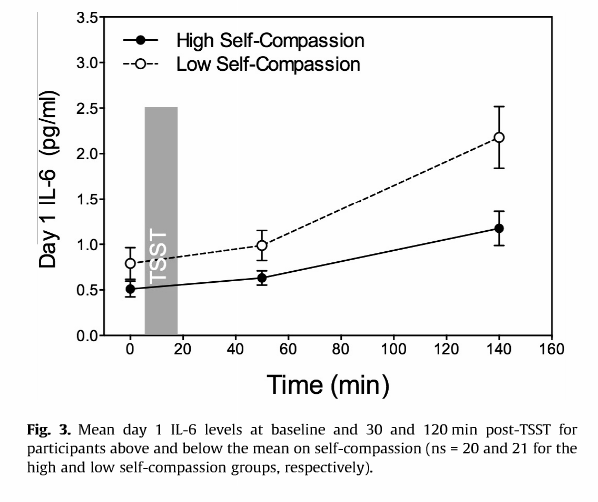Stress is another potential factor in inflammatory-type acne.
Inflammation
A large body of research shows that stress is a factor in many of our chronic health problems, including heart disease, diabetes, cancer, and depressions. This link is at least partly due to the well-established effect stress has on inflammation. Several studies have established that both acute and chronic stress causes inflammation that can lead to a variety of health problems, including acne.
These results show that there is now a convincing body of evidence supporting the notion that acute stress exposure stimulates a slow but steady increase in plasma concentrations of inflammatory markers and that these increases tend to be higher in individuals with less favorable trait or state measures of psychosocial functioning and well-being.
Rohleder, N. Stimulation of systemic low-grade inflammation by psychosocial stress. Psychosom Med 76, 181–9 (2014). https://www.ncbi.nlm.nih.gov/pubmed/24608036
As an example, a 2014 study showed that inflammation levels were about 26% higher in orchestra musicians during a premiere night than during a rehearsal a day earlier.
It seems that the inflammatory response to stress is tied to avoidance emotions, like anxiety and fear. A 2015 study compared the inflammatory response to anxiety and anger. The study showed that anxiety increased inflammation levels whereas anger had no effect.
Better emotional control reduce inflammatory response to stress
Stress doesn’t affect everyone the same way. Several studies have clearly shown that maintaining emotional control and a positive attitude reduces the harmful effects of stress, including inflammatory response. A study published in the journal Stress in 2016 concluded.
As such, we conclude that better cognitive control of emotional information specifically predicts reduced inflammatory reactivity to stress in young-adult women. These effects may thus help explain why superior cognitive control is associated with better lifespan health.
Shields, G. S., Kuchenbecker, S. Y., Pressman, S. D., Sumida, K. D. & Slavich, G. M. Better cognitive control of emotional information is associated with reduced pro-inflammatory cytokine reactivity to emotional stress. Stress 19, 63–8 (2016). https://www.ncbi.nlm.nih.gov/pubmed/26581830
Similarly, a study from 2012 showed that maintaining a positive attitude in the face of stress eliminated the increase in inflammation.
Self-compassion can also reduce the inflammatory response. In a 2014 study, the researchers divided the participants into high and low self-compassion groups. The participants were given various stressful tasks and levels of inflammation was measured before and periodically after the test. This graph shows the results. The grey bar with ‘TSST’ indicates the stressful period.

Source: Breines, J. et al. Self-compassion as a predictor of interleukin-6 response to acute psychosocial stress. Brain Behav Immun 37, 109–114 (2014). https://www.ncbi.nlm.nih.gov/pubmed/24239953
The results clearly show that people who are less compassionate have a much stronger inflammatory response to stress.
The results from this study line up with other studies that have shown lower inflammatory response following self-compassion and mindfulness practices.
Stress and the gut
Stress is one of the major factors in gut problems. Without going into details, a 2011 review titled “Stress And The Gut: Pathophysiology, Clinical Consequences, Diagnostic Approach And Treatment Options” concluded that stress:
- Disturbs gut motility (the time it takes food to pass through the digestive system).
- Changes stomach acid and bile secretion and thus increasing the risk of bacterial problems in the gut.
- Increases intestinal permeability, i.e. causes leaky gut.
- Slows down healing of the intestinal wall after injury.
- Disturbs the bacterial balance in the gut by inhibiting probiotic bacteria and increasing the virulence of harmful bacteria.
- Increases inflammation in the gut.
In other words, stress affects most of the known causes for gut problems.
Conclusion
Stress affects both direct and indirect causes of inflammation in the body. Studies have shown that people with better emotional control, or those who are more self-compassionate, are less affected by stress.
Managing stress and developing ways to deal with stressful situations in your life are likely to help your skin.
